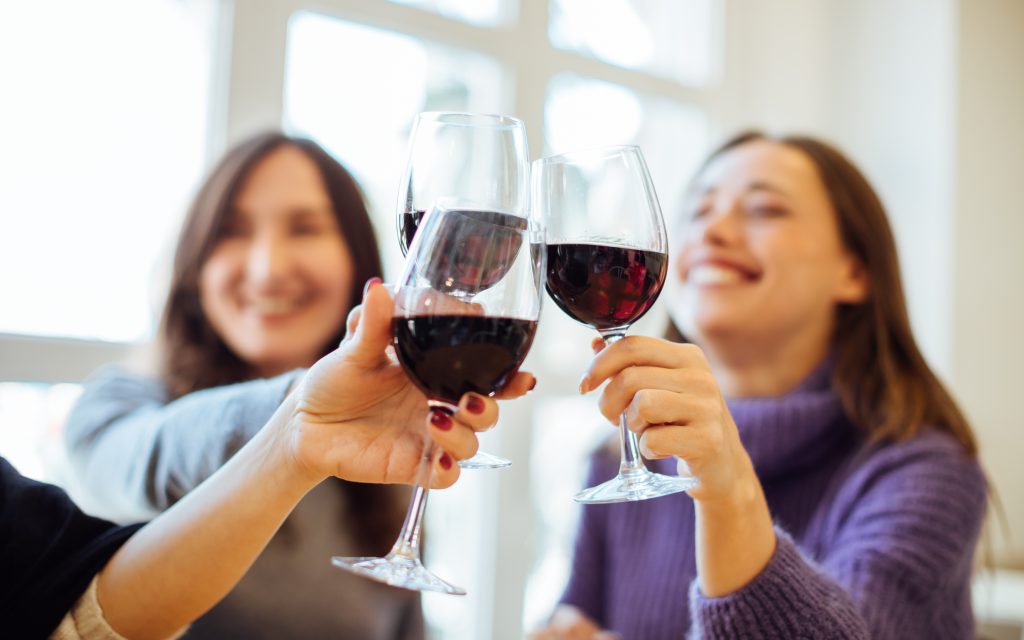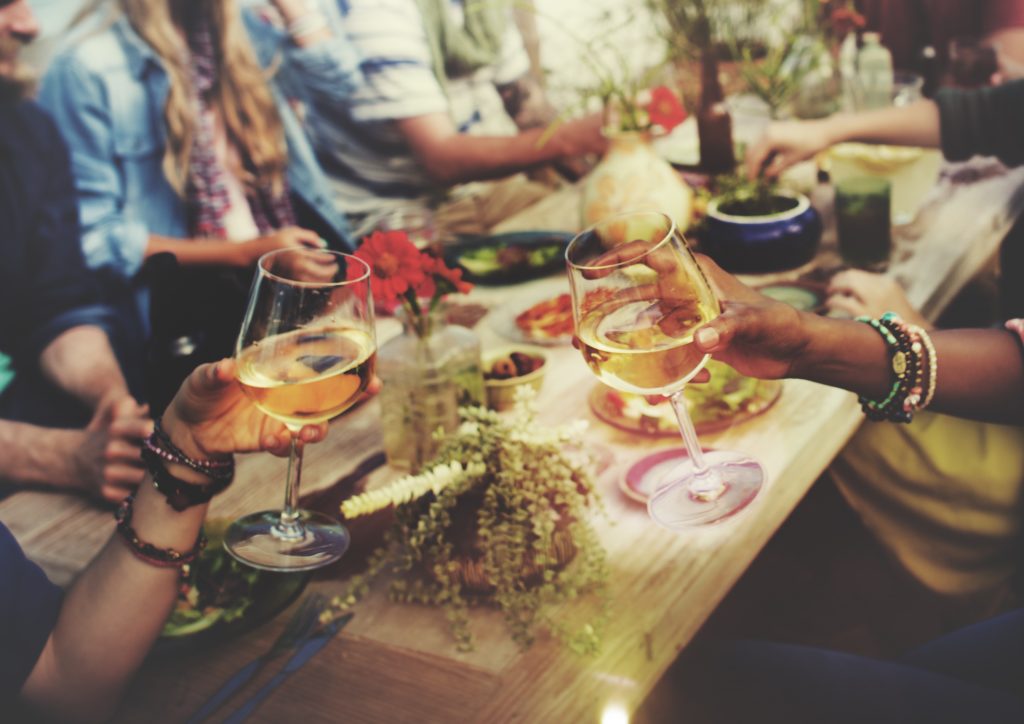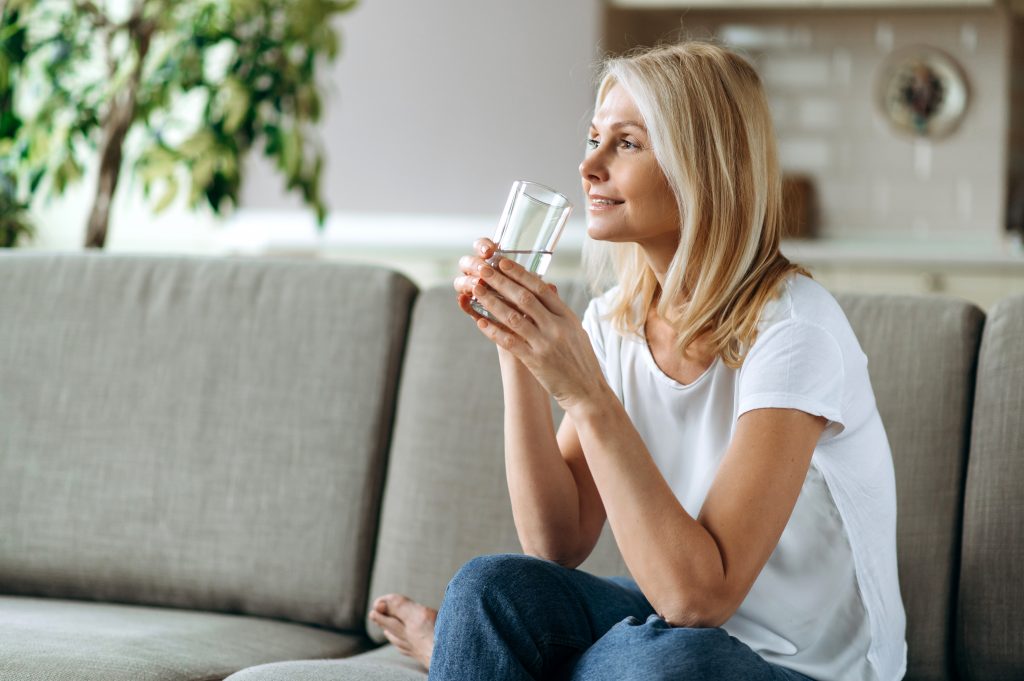
This month through our social media posts we have been looking at alcohol awareness, why we drink, how much we drink and the impact it can have on our physical and mental wellbeing, so I thought I’d touch on this in our November blog. I wanted to take a closer look at the reasons why we drink and think about how we trick ourselves into thinking our drinking is under control and not a problem. This is more about those stories we tell ourselves so we can get away with something that deep down we know isn’t quite right.
When do you tend to drink?
There can be many reasons why we might want to have a drink, not least because we like the taste, and it makes us feel good. We might find we feel more relaxed, or a little less inhibited or “uptight”, and are able to have more fun. Or we tell ourselves that it helps us to unwind or de-stress after a busy day. The key reasons why we drink include:
- It’s a social activity and we are social animals. For many of us getting together with friends or family may well include going for a meal or meeting for a drink. So drinking becomes linked with celebrations and having fun.
- It’s something we do after work either to build stronger connections with our teammates or to entertain clients. Again, both of these are very social activities and I know I’ve done these in the past. We tend to build stronger connections with people outside our family group through socialising. I’ve been in jobs where you need to “entertain” clients and that can mean a lunch or dinner appointment or other hospitality activities, all of which no doubt included having a drink.
- It’s something we do to relax. Now this is a big one – we come home from a busy day at work, we’re tired and perhaps it’s been a bit of a stressful day and what do we do? We reach for that glass of wine to help us unwind. Whilst the wine itself might not make us feel relaxed, it offers a break pointbetween the stress of the day and sitting down at home relaxing.
Those are just three ideas of when we can find having a drink becomes part of the social norm, but I am sure you can list many more. But the truth here is that whenever we reach for a drink, we need to be making a conscious decision around why we are doing that and how much we will drink. All too often the “just one to help me relax” becomes two or three and we find it becomes a habit or part of our daily routine.
I know when I was working in financial services, alcohol was very much a part of how we did business, how we socialised and how we unwound from the stress of the job. I would often come home feeling a bit tired and would reach for a G&T before I did anything else.
I was with friends this past week, who talked about drinking up to a bottle of wine (or sometimes two) a night now they are retired. It is so easy for us to find our drinking becomes part of our routine and we stop noticing how much we are drinking and then we reach for more to get that same feeling as before.
Let me tell you a story

A lot in my life has changed over the past year – my business has grown along with my clients, and my husband has taken early retirement. This now means we are both at home during the day which is great as we get to spend more time together – something we’ve wanted to do for some time but work and shifts got in the way.
Whilst my husband was working shifts, we could unintentionally find ourselves drinking during the week and more and more frequently. His four off-days quickly became his extended weekend and could often fall Monday-Friday. So, hubby would sit down and have a bottle of beer in the evening and maybe even a G&T before dinner on those nights. Now I would come home from work (before I became self-employed) and would join him having a drink.
It wasn’t until I was self-employed, and my husband had given up work that we realised we had taken to drinking at least 4 nights a week and for me that was often on “a school night”, and whilst the quantities weren’t high, over the course of the week they would add up. So, when we found ourselves at home together, we made a conscious decision not to get into the habit of drinking every night because we were semi-retired! We could have fallen into the trap of drinking because we didn’t need to get up early the next day and go into work, but we chose not to do this.
So now we restrict our drinking to the weekend – Friday through Sunday but still making sure we weren’t drinking to excess. Then we go to friends for a week and that holiday mentality kicks in. From the moment we arrive (on a Tuesday) the offer of alcohol is there, and we found ourselves having a drink every night. Now we were on holiday so where’s the problem? There isn’t a big problem other than the association of socialising having to include alcohol because that’s what we do when we get together. Our usual routine was blown out of the water.
Why is it a problem?
Drinking isn’t of itself a problem, but the quantities and the impact of alcohol on our physical and mental wellbeing is the issue. The NHS guidance is 14 units of alcohol per week for a woman (it is higher for a man), but this is very subjective based on the size of the measure and the strength of the alcohol, not to mention the body type of the person. So often we don’t measure the units – we count our drinks by glasses or bottles and those are way more than one unit for starters!
Now alcohol can be both good and bad for us and that’s where the confusion comes. For example, if a woman drinks one glass of red wine in perimenopause, then this could reduce her experiences of hot flushes. However, if a woman drinks the same amount of red wine in post menopause than it can have the opposite effect – it can increase the incidents and severity of both hot flushes and night sweats. This is where it gets confusing as you don’t know what to do for the best but it’s clear alcohol can have varying degrees of impact on us depending on our stage of life.
- It can increase anxiety and depression, in some cases, even causing otherwise calm people to feel more anxious.
- It can impair our judgement, decision making and thinking. Add that to brain fog at menopause and you can see how our abilities can become impaired.
- It can make us less aware of our surroundings and perhaps a little falsely brave leading us into dangerous situations. Just think about the incidents of drink spiking in clubs, muggings etc that happen when someone has drunk too much.
- It can cause us to gain weight. How many times do you get the munchies after you’ve been drinking? Plus, we don’t make good food choices. Drinking alcohol whilst eating can mean that your body is less able to break down fats and calories.
- It can stop us sleeping well. Many people talk about having a night cap because it relaxes them and helps them to sleep. This in part is true because alcohol does act as a low-level sedative, but our sleep will be lighter and shorter. To get that relaxing feeling we will need to drink more and more.
- It becomes addictive. Alcohol can switch on the reward centres in our brains causing hormones to be released that make us feel good but also make us crave more and more. Like any addiction we will find we need more to get the same “high” feeling.
What can we do?

Don’t get me wrong, I’m not saying, we all must give up drinking and become teetotal. What I am saying is that a little of what we like does us good. So, think about drinking within healthy boundaries and embracing words like “discipline” and “moderation”.
Develop the discipline to drink in moderation. That might mean taking one or more of the following actions:
- Reduce the number of times you reach for a drink in the week. Perhaps think of drinking just at the weekend so that you have more day’s alcohol free.
- Reduce the amount of alcohol you consume. Get to know what a unit constitutes and ensure that you aren’t drink more than the recommended amount per week or per day.
- Switch what you drink for something with a lower alcohol content. Remember the stronger the drink the more units you will be consuming even if the bottle or glass is the same size. Think about swapping your usual favourite tipple for something with a lower alcohol rating or try one of the alcohol free beers or spirits that are on the market.
- Try alternating your drinks with a soft drink or better still a glass of water. When we drink alcohol, we become dehydrated and that gives us the light headed feeling, but if we have a glass of water in between each alcoholic drink then we reduce the chance of dehydration and might find we drink less in the long run.
Those are just a few ideas where you can still enjoy a drink without it having the harmful effects that it could have on us. And if you are perimenopausal or post-menopausal, think about keeping a diary to monitor the impact on your symptoms. I know that red wine makes my digestive issues, night sweats and sleeplessness even worse and so I either accept that will be the case or reduce the amount I drink. I am now more disciplined with how I think about drinking and am more likely to drink in moderation. I still enjoy a drink but just within boundaries I am happy with.
So back to my story. Even with our friends I recognised my routine and discipline around drinking was being challenged. The moment I recognised that I was able to accept this was the case and find ways to help myself – so I stuck with drinking tea or coffee and when we were out for an evening, I only had one or two drinks. I still enjoyed my time, felt like part of the crowd, and had fun which is most important. I could also laugh inside when some of my friends felt a little worse for wear the next day!
For more support and help
If you are a menopausal woman and want to learn more about how to look after your wellbeing through this critical stage of your life, check out our courses and the Phoenix Wellbeing Café.

